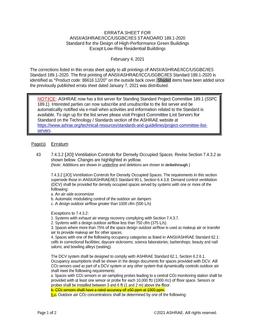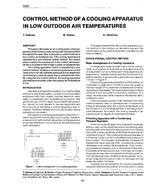Over the years, chilled ceiling has demonstrated its wide applicability in residential buildings and offices in several countries, since it is asuperior air conditioning system characterized by its quite operation and efficient cooling with minimal air motion. The integration of thechilled ceiling with the displacement ventilation (DV) system enhances the indoor air quality. On the other hand, the use of the desiccantmembrane system integrated with a DV permits operating the chilled ceiling at a low temperature to extend its applicability to some hotand humid climates. However, such system could have some limitations since condensation could occur under certain conditions and thatcauses undesired drop formation and mold growth.
In this study, two different configurations (parallel and counter) of the solution desiccant flow in the chilled ceiling are compared for the sameDV operating parameters. This is achieved using a steady-state mathematical model for a space conditioned by a cooled liquid desiccantdehumidification membrane ceiling (LDMC-C) and displacement ventilation DV. The mathematical model solves the heat and masstransfer equations on the two sides of the dehumidifier: the liquid desiccant side and the air boundary layer side. Then, the model isintegrated to a space model to have accurate predictions of temperature and humidity adjacent to the ceiling where the risk of condensation ishighest. The effect of the flow configuration on the system’s performance and on the condensation risk is investigated under different inletconditions for the liquid desiccant solution.
Keywords: Membrane desiccant dehumidifier; displacement ventilation; chilled membrane ceiling; condensation.
Citation: 2018 Annual Conference, Houston, TX, Conference Papers
Product Details
- Published:
- 2018
- Number of Pages:
- 9
- Units of Measure:
- Dual
- File Size:
- 1 file , 530 KB
- Product Code(s):
- D-HO-18-C066


